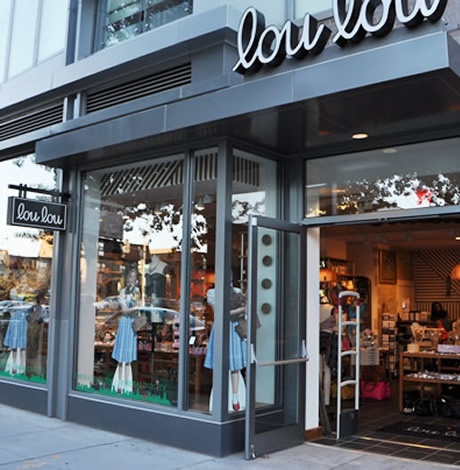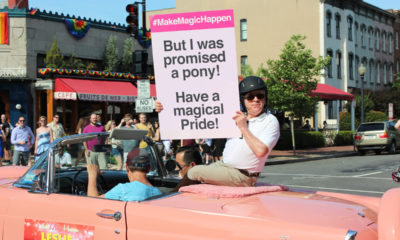Fitness
Soul searching
New fitness craze might seem sappy but works
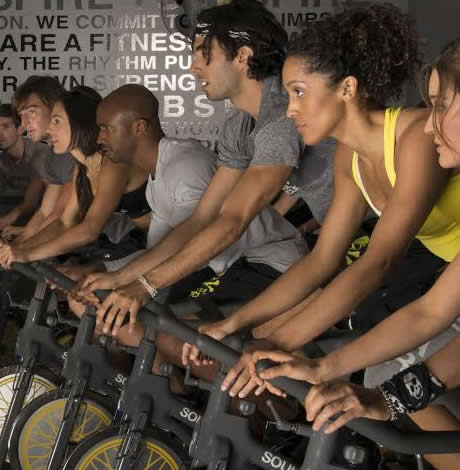
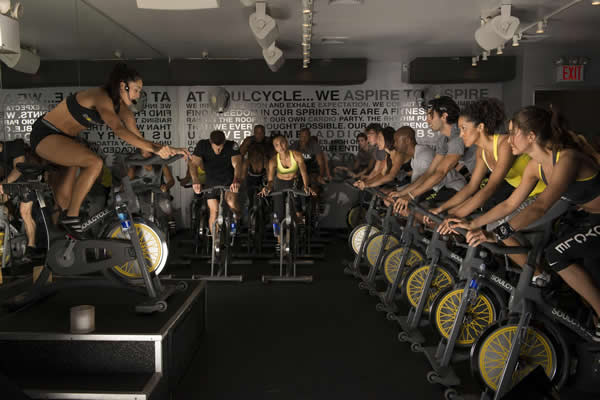
Soul Cycle workouts work to unite the physical and spiritual. (Photo courtesy SoulCycle)
Soul Cycle studios are available locally at 2301 M St. N.W. in Washington and at 4931 Elm St. in Bethesda, Md. Visit soul-cycle.com for more information.
Most of the time I write these articles, I write from the perspective of being the teacher and imparting small bites of wisdom that have helped me and my clients over the years.
This time around, I want to change it up a bit and write from the perspective of being the student and taking in a new experience. For me, there was no better way to do this then by taking my first Soul Cycle class. Over the last few months, I kept hearing my past clients, friends and boyfriend rave about Soul Cycle. What was so great about paying $30 to ride on a spin bike with 50 other sweaty people in the same hot room for 45 minutes? Well I was about to find out.
Like any good person does these days, I went to the web and read the reviews about what other people were saying about the Soul Cycle craze. I learned the Soul Cycle name speaks for itself and that the intent and experience of the ride is to become aware and present with your feelings and energy and connecting to that place during your ride. Co-founders Elizabeth Cutler and Julie Rice met in New York City and write on the company website that they “were determined to find an alternative to the fitness routines that felt like work. They’ve opened 36 locations since 2006 and have plans for many more.
While that all sounded wonderful and profound, I was still a little skeptical that I could achieve this sense of enlightenment in just 45 minutes. Nonetheless, it piqued my interest because I think it’s always hard to connect both your spiritual and physical energy into one experience (other than yoga, that is). So of course, I created a profile and signed up for my first ride, which is only $20 for a first-time rider.
Like a good student, I arrived a few minutes early to fill out the form and check out the space. I must say that for how small the actual space is, it is set up and operated efficiently. The front desk staff was super friendly and the check-in process we easy. And don’t worry, if you forgot your cleats or don’t have any, like me, you can get them your first time for free and then a minimal fee thereafter. And although it was a small thing, I particularly like that the lockers have a built in lock, so you don’t have to worry about having to bring your own.
So there I was, all signed up with my shoes on, ready to go when all of the sudden one of the doors opened and a sea of sweaty, tired, yet overly excited group of people came flooding out of the room. As I set there watching this group of people talk about the class and change out of their drench clothes, I begin to sense a sort of energy coming from the group. I felt a sense of accomplishment emanating from them. Like they conquered, not only the class, but something with themselves. I was feeling this energy and I wasn’t even in the class yet. And while it may sound silly, my energy started to change. I started to feel anxious, excited, even trying to guess and anticipate what the experience would be like in my head. I realize in that moment, that I had caught my first taste of the Soul Cycle bug.
Before I knew it I was in the dark tiny room, finding my seat on bicycle no. 36 anxiously anticipating what was to come. Kathleen, the instructor, was not only full of energy, she gave great instruction for her first-time riders and made sure that the class helpers came around to help adjust my position on the bike. So there I was all clipped in and adjusted on my bike when all of the sudden the lights went down, the music went up and I started pedaling my butt off.
Instantly two things began to happen. One, I immediately felt a sense of collective energy in the room begin to build and two, I felt this internal struggle within me become present. I was very aware that I was trying hard to push away the negative stressors of the week away (family, work, etc.) from me and bring something happy, powerful and positive into the space. In short, I was connecting to that rare place I, and we, often fear to go: the soul. I had to deal with feelings and insecurities right then and there on the bike and to be honest, I was in such state that some times I forgot that people were around me or that I was increasing my resistance or that I had sweated completely through my shirt. I was in a space all my own and I was glad that Soul Cycle allowed me to get there.
My importantly, Kathleen allowed me to get there. If it were not for her, and her alone, I would have had an entirely different experience. I don’t know how the instructors or trained or what their methodology is, but it works, it definitely works. All of Kathleen’s instruction and cueing come from a very, for lack of a better word, “soulful” place. Not only could you tell she was sharing her soul with you, she was asking to take a look at your own energy and spirit and challenge it to do and be better. Oh! And how could I forget the amazing music that accompanied this journey? Just when I felt like I couldn’t break through or push on, Kathleen’s music provided that bit extra boost of confidence I needed to succeed.
Before I knew it time was up and there I was tired, exhausted and happy that I found a new state of being and that I could be present with myself and those around me. In short, Soul Cycle is definitely a one of a kind experience you must try at least once. Once you do, you will be hooked.
Fitness
NEW YEAR NEW YOU 2020: Local VIDA master trainer on trends, tips and technology at the gym
Get good technique down first; you can always add weight later
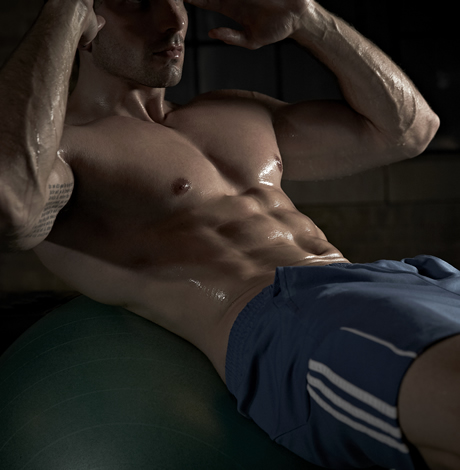

Jesse Johnson makes his living working as a master trainer at VIDA Fitness (U Street location) but he agreed to share some of his tips and advice with us for free.
The U Street location is one of five of the gay-owned chain’s D.C. locations. A sixth is slated to open this spring in Ballston (Arlington, Va.). Johnson is 33, gay and left a career in corporate staffing to join the VIDA team in 2011. He averages between 50-60 clients in mostly 30-minute sessions per week. Find out more at vidafitness.com. Free introductory classes are available this month. The offerings are listed at vidafitness.com/uniqueclasses.
Johnson’s comments have been slightly edited for length.
WASHINGTON BLADE: How much does the coaching you give your clients vary from year to year as new studies and findings are made available? And how do you know if something is just another fitness fad vs. something we should really heed?
JESSE JOHNSON: There are always going to be fitness trends, that’s a given. However before we alter what we tell our clients, we look to peer-reviewed literature. One or two studies doesn’t give much evidence — that’s not enough proof. We definitely pay attention to what is trending and we try to stay as current as possible, but we don’t incorporate it until it’s been through a more rigorous review process.
BLADE: What trends have you seen of late?
JOHNSON: In the collective big picture, there’s been a big uptick in group training. The term that’s thrown around is fitness cocktails where somebody may do a couple classes back to back, some cardio, maybe some core body work, different muscle groups — there’s been an uptick in that. And also more of what we call functional training. People want to be pain free and strong. Sure, there’s always the aesthetic benefit of lifting weights, but what people really want is to be functionally strong into their 40s, 50s, 60s and 70s.
BLADE: Anything else?
JOHNSON: I think workouts are becoming more mindful as people use technology — apps and wearable tech to be more aware of what they’re doing. From a metric-tracking standpoint, it’s easy now to tell your heart rate, number of calories burned, number of steps taken in the course of a day with Fitbit, Myzone, the Apple watch, to the apps themselves like the Peloton apps are pretty innovative and help people be more aware of what they’re doing, how frequently. There’s more mindfulness in working out. Also people see going to the gym as more of a club or social space among millennials and Gen Z. They work out with friends, it’s seen as more social, not punishment after a weekend of drinking.
BLADE: How much does the industry really change? For instance, would you say there’s anything significantly different you’re telling your clients today vs. what you might have said when you started at VIDA nine years ago?
JOHNSON: Well, knowledge has increased dramatically and a lot of it is due to the fact that this industry didn’t even exist 40-50 years ago. People didn’t have the same needs then they do now. But a lot of the basic fundamentals are the same — keep moving, stay active, eat purposeful and do things you enjoy doing. If you enjoy doing it, it’s easier to make it a habit. I’d say we take more the sniper approach today vs. the machine gun approach. We target more instead of just spraying a bunch of bullets hoping something hits.
BLADE: So often with nutrition it seems you’ll hear one thing, then five years later the exact opposite is what experts are saying: don’t eat eggs, no eggs are good. Stuff like that. Does fitness advice change that drastically as well?
JOHNSON: Not as much. A lot of it has to do with whether people are already moving or not. We don’t take them right out of the gate to a high level of intensity. We let them work up to it. But no, I can’t think of any particular exercise we were advising a few years ago we’re saying, “No, don’t do that one anymore” or anything like that.
BLADE: What do you do if you see people working out on their own using improper technique? Can you really hurt yourself with bad form, like lifting with your back and that kind of thing?
JOHNSON: Well we try to be as polite as possible. We’ll only approach someone if we thinkg they’re about to injure themselves. But knock on wood, I haven’t seen very many injuries at VIDA and I like to credit that to the large staff of personal trainers we have on the floor. There is an inherent risk to working out — you can hurt yourself, but it doesn’t happen very often.
BLADE: Is it better to stay at a weight level at which you can maintain excellent form or push yourself out of your comfort zone with heavier weight even if your form suffers a little?
JOHNSON: Numerous studies have found if you take a lighter weight and do more reps but push yourself to your failure threshold vs. doing fewer reps of a heavier weight to failure, the outcome is the same. And there’s a higher risk of injury with heavier weights. We like to focus on form and technique before we progress, especially if somebody is just joining the gym and they may not know much about resistance training. You can always add weight later.
BLADE: How many of the New Years resolution folks really stick with it? Do you see many of those same faces by March or April?
JOHNSON: Almost all my new clients stay with me for months, sometimes years. However statistically within the industry, the number is very low. The honeymoon period on average is about six weeks and it’s a shame because often you see your best results 12-16 weeks into a program. You’ll see more immediate results sooner but that’s when it starts to get really spectacular.
BLADE: How bad are the wait times for machines at VIDA? Is it pretty crazy at peak time?
JOHNSON: I’m not gonna lie, the gym is very busy and there are peak times. But the U Street location is more residential and we have between 50,000-60,000 square feet of space so there’s not a lot of wait time for many of the machines. And people tend to be pretty aware. They’ll let you work in with them.
BLADE: How gay is it?
JOHNSON: I’d say 50-60 percent of our clientele is gay.
BLADE: Some lesbians and trans folks as well?
JOHNSON: There are lesbians. I don’t personally have any trans clients but we have 30 trainers on staff so there may be some but yeah, it’s mostly gay men. Obviously everybody is welcome.
BLADE: Has that ebbed or flowed much over your years there?
JOHNSON: No, D.C. is a pretty good city to be a gay person in. I haven’t seen any major change.
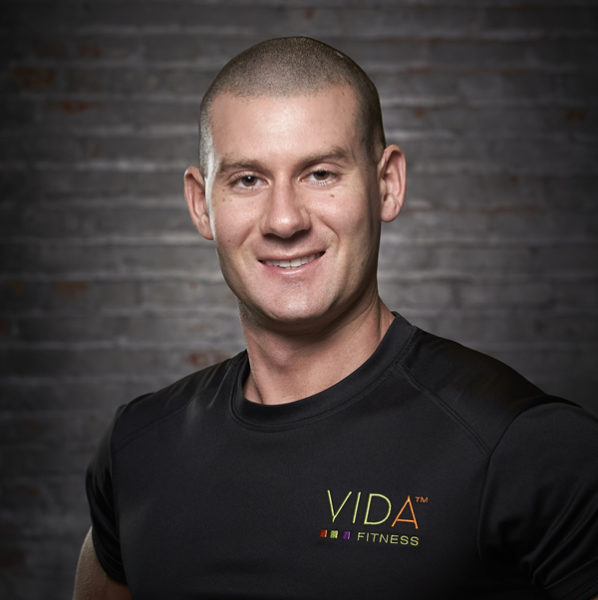
Fitness
Why a personalized diet can help you achieve better results
One size fits all is not the best approach when it comes to eating and fitness
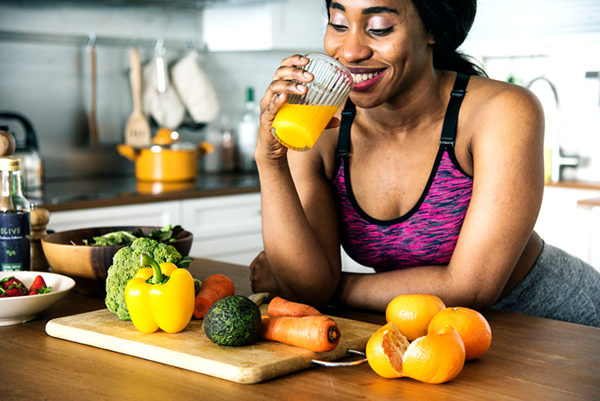
From custom-designed sneakers to tailor-made sunglasses, the trend of personalization is going head to toe, and for good reason, making its way to the world of weight loss and wellness.
Specifically, researchers have been studying two converging topics in recent years. One is the importance of body type in determining the combination of fats, carbohydrates and protein that will provide the best results for a given individual. The other is the variability of results associated with a single diet — the idea that if two people start the same diet at the same time, their results could be drastically different.
On top of that, consumer research shows that people overwhelmingly prefer personalized experiences. Sixty percent of consumers agree that personalization is essential to weight loss and overall wellness.
Here’s what to know about why personalized diets are becoming so popular and how to find the right diet for you:
The importance of body type
The places your body stores excess fat may be the single greatest predictor of health outcomes. This is the concept behind Nutrisystem’s assessment of the four most common body types: “Apple,” “Pear,” “Hourglass” and “Rectangle.”
“We’re going a bit old school here, because these categories have stood the test of time for a reason. They provide crucial information on how you respond to food intake and can help you to adjust what you eat based on your goals,” says Courtney McCormick, corporate dietitian at Nutrisystem.
Body type can also influence how macronutrients like fat, protein and carbs are processed. To fulfill your individual needs, first determine your body type, food preferences and goals, then look for a weight loss plan that takes these important factors into consideration, such as Nutrisystem.
One size does not fit all
The DIETFITS study, a large, randomized research study comparing low-fat versus low-carb dietary patterns found no difference in weight loss between them. But drilling down into the data, one can see great variability. Some dieters gained weight while others lost a lot. But it’s not always about weight outcomes, as recent research has shown that factors such as body shape may play a bigger role in the determinants of health risks than body weight alone.
For instance, a woman who is apple-shaped tends to carry her extra weight in the mid-section. She would see best results on a lower-glycemic nutrition plan that is lower in refined carbs and higher in healthy fats and protein.
“Research shows that one size does not fit all when it comes to weight loss and disease prevention,” McCormick says. “That’s why we’ve created a unique, personalized approach that’s easy to follow and designed to help participants lose weight and get healthy.”
For more insights on how to personalize your diet and maximize results, visit leaf.nutrisystem.com.
While it’s no secret that achieving one’s weight loss goals is challenging, personalizing your plan can help make things easier, ultimately providing you a greater chance of success.
Fitness
Al Roker blasts Jillian Michaels for criticizing Keto diet
The fitness trainer says the ‘personal attacks’ were ‘bizarre’
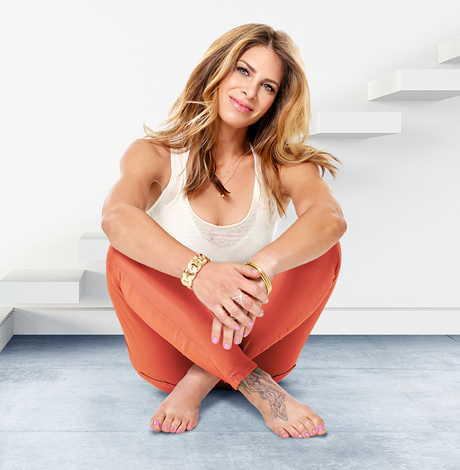
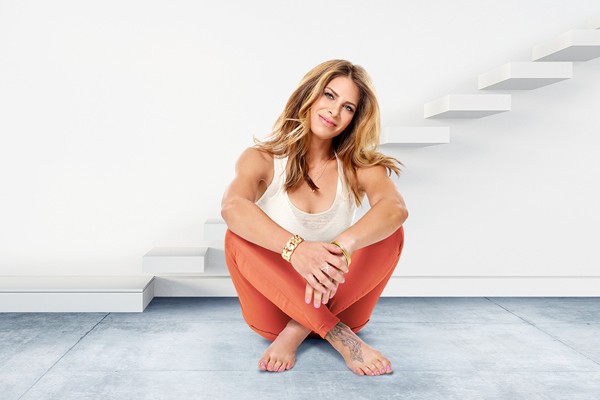
Jillian Michaels revealed she “hates” the increasingly popular Keto diet but “Today” show weatherman Al Roker slammed the fitness trainer for dissing the high-fat, low-carb diet.
Speaking with Prevention, Michaels says she doesn’t like the diet because “There’s no calorie restriction;” “You may miss out on important nutrients;” and “It could shave years off your life.”
In response, Roker, who is a fan of the diet, called out Michaels for her aggressive reputation as a fitness trainer on “The Biggest Loser” on Twitter.
“So @JillianMichaels says #Keto is a bad idea. This from a woman who promoted on camera bullying , deprivation, manipulation and more weekly in the name of weight loss. Now those sound like bad ideas,” Roker tweeted.
So @JillianMichaels says #Keto is a bad idea. This from a woman who promoted on camera bullying , deprivation, manipulation and more weekly in the name of weight loss. Now those sound like bad ideas
— Al Roker (@alroker) January 10, 2019
Roker further defended the Keto diet, which he says he has been on since Sept. 1, on “The Today Show.”
“My point is, what works for you, works for you,” Roker explains. “There’s science on both sides that says it’s not a great idea and science that says it is a good idea.”
.@alroker explains why the #keto diet works for him, "What works for you, works for you. There's science on both sides." pic.twitter.com/d05pSjIKLE
— TODAY (@TODAYshow) January 11, 2019
Michaels responded by posting a video on Twitter saying she didn’t appreciate Roker’s “personal attacks”
“It’s bizarre, it’s unnecessary, it’s beneath both of us,” Michaels said. “Read my book, ‘The 6 Keys.’ I’ve extensively researched everything in that, and nutrition is about way more than weight loss.”
. @alroker here to chat whenever pic.twitter.com/nK1bhi8kBc
— Jillian Michaels (@JillianMichaels) January 12, 2019

